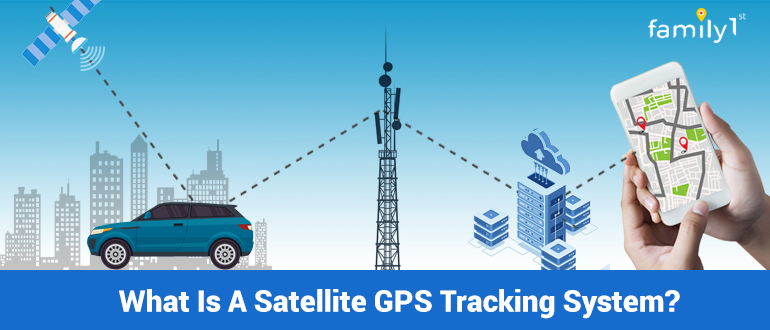Browsing the Future of GPS Monitoring: Technologies, Challenges, and Opportunities Ahead
As we stand at the crossroads of societal effects and technical advancements, the landscape of general practitioner tracking is poised for a transformative journey in advance. The advancement of GPS technology has actually been fast, ushering in a new age of real-time tracking abilities that promise extraordinary degrees of accuracy and efficiency. Nonetheless, with fantastic technology comes fantastic obligation, as data privacy worries impend huge and security difficulties in general practitioner monitoring raise relevant concerns concerning safeguarding sensitive details. Amidst these challenges lie covert chances waiting to be checked out, providing a peek into the untapped possibility of a market at the brink of change.
Advancement of GPS Innovation
The Evolution of GPS Technology has been marked by considerable innovations in accuracy, insurance coverage, and efficiency for many years. Initially developed for army objectives, general practitioner modern technology has progressed to become a common tool in different fields, consisting of transportation, logistics, agriculture, and individual navigation. Early general practitioner systems were characterized by restricted insurance coverage, reduced precision, and bulkier equipment demands. Nonetheless, with ongoing technical advancements, GPS has transitioned to a lot more efficient and specific systems that use global coverage and enhanced precision.
One key landmark in the evolution of GPS technology was the growth of Careful Accessibility (SA) in the 1990s, which intentionally broke down the accuracy of noncombatant General practitioner signals. As GPS innovation proceeds to progress, we can expect more enhancements in performance, accuracy, and protection, opening up new possibilities for innovation and applications across various markets.
Real-Time Tracking Innovations
Building on the advancements in GPS innovation that have reinvented precision and coverage, real-time tracking has actually become an essential area of development with profound effects throughout various industries. Real-time tracking improvements enable companies and companies to keep track of workers, assets, and vehicles instantaneously, providing valuable insights for decision-making processes - gps tracking. By leveraging real-time data, firms can boost operational effectiveness, improve consumer service, and ensure the safety and security and safety and security of their possessions
One of the vital improvements in real-time monitoring is the combination of artificial knowledge and machine discovering algorithms, which allow predictive analytics and anomaly discovery. These abilities permit for proactive maintenance scheduling, route optimization, and threat reduction strategies. Additionally, the development of real-time radar has resulted in the advancement of mobile applications and customizable dashboards, empowering individuals to gain access to crucial details anytime, anywhere.
Data Personal Privacy Worries

Information privacy problems encompass different aspects, consisting of the storage, sharing, and retention of area data. Companies should carry out robust safety steps to safeguard GPS tracking data from cyber threats and information violations. Clear plans relating to data collection techniques and the function of tracking are necessary to build trust with customers and guarantee compliance with information defense guidelines.

Safety Difficulties in GPS Tracking
Dealing with data privacy problems in GPS tracking is intricately linked to reducing the safety and security tests that occur from potential vulnerabilities in the modern technology. One of the key safety and security difficulties in GPS monitoring is the threat of unapproved access to sensitive area data.

Another safety and security difficulty is the possibility for spoofing or jamming GPS signals. Applying durable security, verification measures, and signal confirmation methods are crucial actions in attending to these safety obstacles in GPS tracking.
Emerging Opportunities in the Industry
The growing field of General practitioner tracking technology offers a myriad of promising possibilities for market growth and advancement. One essential possibility lies in the development of General practitioner monitoring applications beyond typical markets. GPS monitoring can change person treatment by making it possible for remote tracking of essential signs and guaranteeing timely clinical assistance.
Furthermore, the raising demand for linked devices and IoT solutions presents a ripe possibility for GPS tracking business to broaden their offerings and develop ingenious options that provide to a more linked world. By utilizing on these arising opportunities, General practitioner monitoring companies can position themselves for sustained development and success in the vibrant landscape of the sector.
Conclusion
In verdict, the future of General practitioner tracking is marked by continual evolution and advancement in technology. As the sector relocates onward, imp source navigating these challenges will my review here be crucial to make sure the continued development and success of GPS monitoring modern technology.
With terrific innovation comes wonderful duty, as data privacy concerns loom big and safety obstacles in General practitioner tracking raising relevant concerns concerning protecting delicate details.With the fast spreading of GPS monitoring technology in numerous markets, dealing with data personal privacy issues has come to be a vital necessary for both customers and companies alike. The collection of place information through GPS tracking increases substantial personal privacy concerns, as it enables the tracking of people' activities and actions. Services using General practitioner monitoring need to focus on protecting this data to avoid unauthorized gain access to or misuse that could jeopardize individuals' personal privacy rights.
Companies have to carry out durable safety measures to shield General practitioner monitoring information from cyber risks and data violations.